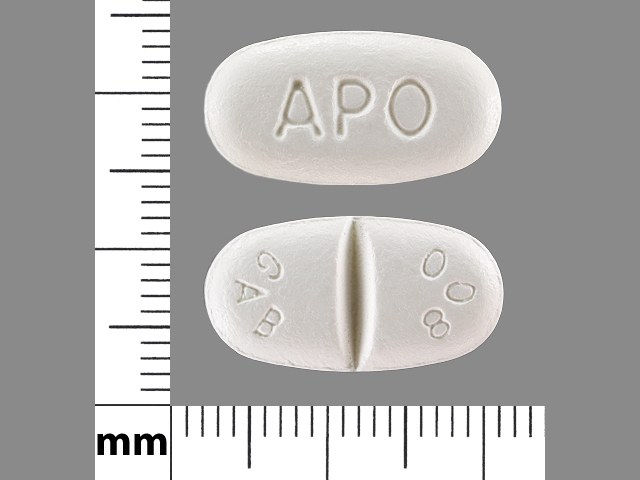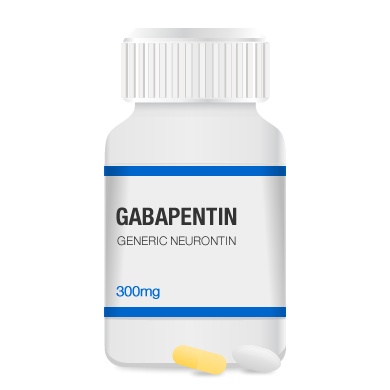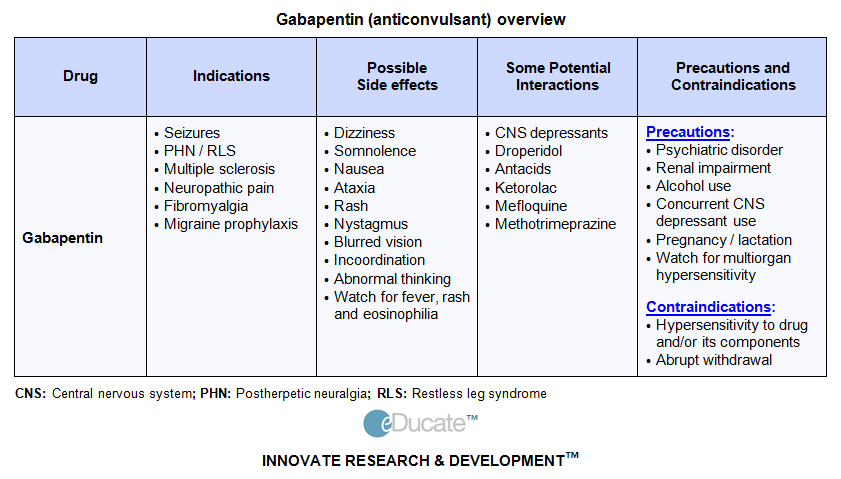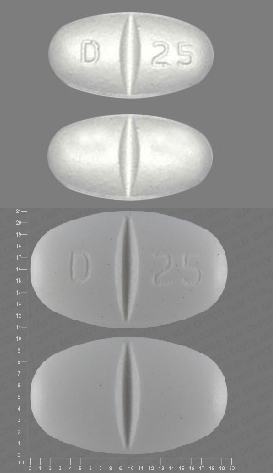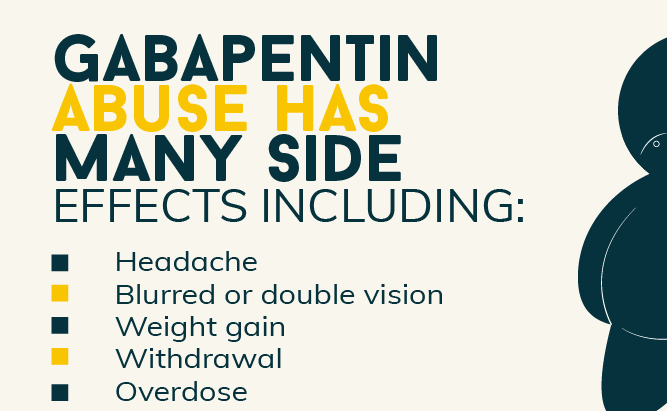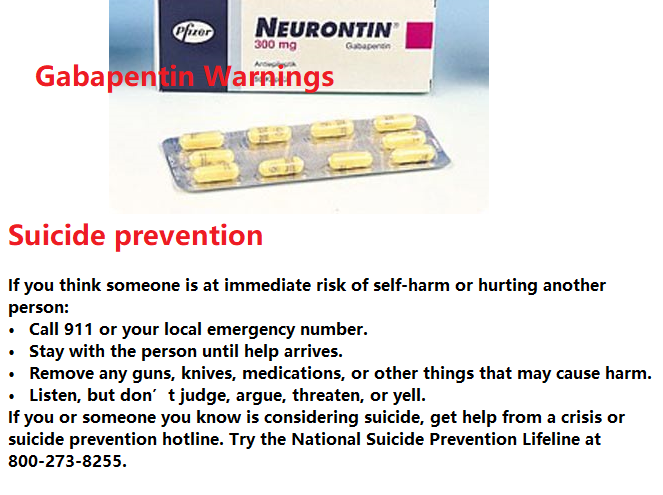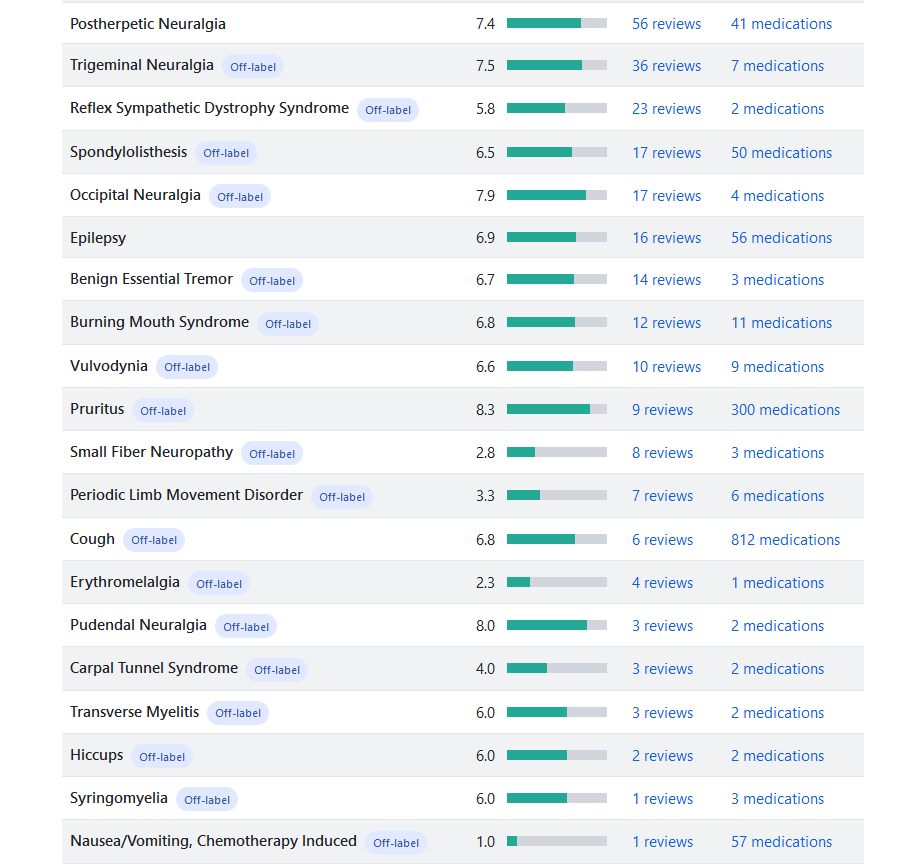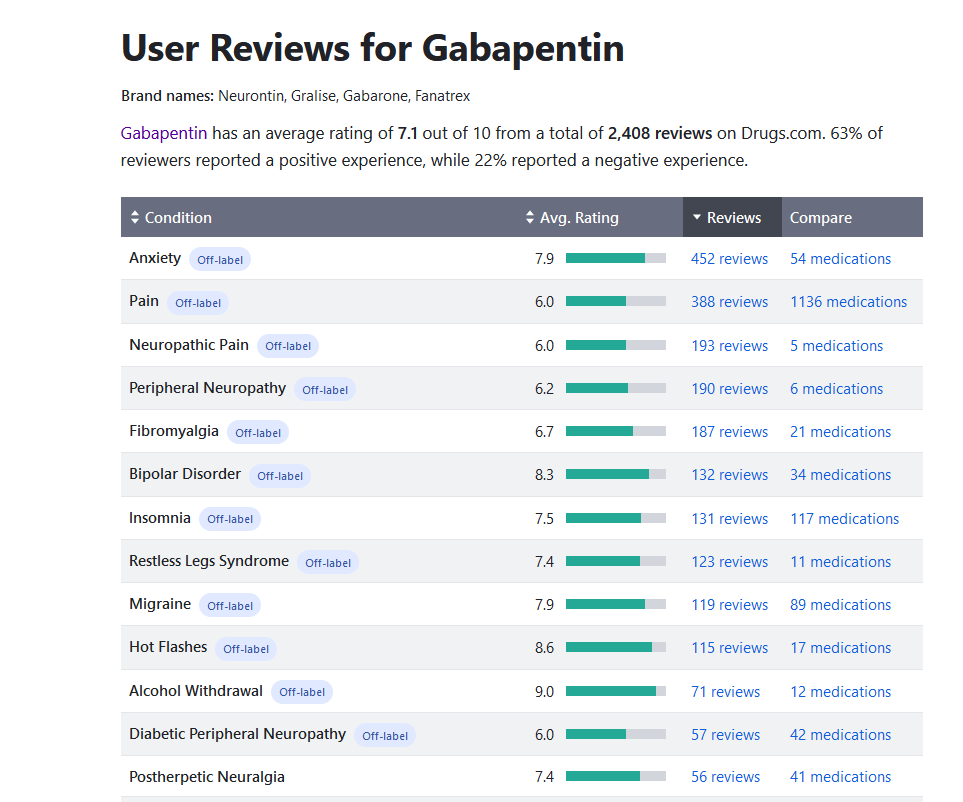Before taking gabapentin,
- tell your doctor and pharmacist if you are allergic to gabapentin, any other medications, or any of the inactive ingredients in the type of gabapentin you plan to take. Ask your pharmacist for a list of the inactive ingredients.
- you should know that gabapentin is available in different forms that may be prescribed for different uses. Ask your doctor to be sure that you are not taking more than one product that contains gabapentin.
- tell your doctor and pharmacist what prescription and nonprescription medications, vitamins, nutritional supplements, and herbal products you are taking or plan to take. Be sure to mention any of the following: antidepressants; antihistamines; medications for anxiety; medications that make you feel dizzy or drowsy; medications for mental illness; naproxen (Aleve, Anaprox, Naprosyn, others); opioid (narcotic) medications for pain such as hydrocodone (in Hydrocet, in Vicodin, others), morphine (Avinza, Kadian, MSIR, others), or oxycodone OxyContin, in Percocet, in Roxicet, others); sedatives; medications for seizures; sleeping pills, and tranquilizers. Your doctor may need to change the doses of your medications or monitor you carefully for side effects.
- if you are taking antacids such as Maalox or Mylanta, take them at least 2 hours before you take gabapentin tablets, capsules, or solution.
- tell your doctor if you have or have ever had lung or kidney disease. If you will be taking the extended-release tablets, also tell your doctor if you need to sleep during the day and stay awake at night.
- tell your doctor if you are pregnant, plan to become pregnant, or are breast-feeding. If you become pregnant while taking gabapentin, call your doctor.
- if you are having surgery, including dental surgery, tell the doctor or dentist that you are taking gabapentin.
- you should know that this medication may make you drowsy or dizzy, may slow your thinking, and may cause loss of coordination. Do not drive a car or operate machinery until you know how this medication affects you, and your doctor agrees that it is safe for you to begin these activities.
- if you are giving gabapentin to your child, you should know that your child’s behavior and mental abilities may change while he or she is taking gabapentin. Your child may have sudden changes in mood, become hostile or hyperactive, have difficulty concentrating or paying attention, or be drowsy or clumsy. Have your child avoid activities that could be dangerous, such as riding a bicycle, until you know how gabapentin affects him or her.
- remember that alcohol can add to the drowsiness caused by this medication.
- you should know that your mental health may change in unexpected ways and you may become suicidal (thinking about harming or killing yourself or planning or trying to do so) while you are taking gabapentin for the treatment of epilepsy, mental illness, or other conditions. A small number of adults and children 5 years of age and older (about 1 in 500 people) who took anticonvulsants such as gabapentin to treat various conditions during clinical studies became suicidal during their treatment. Some of these people developed suicidal thoughts and behavior as early as one week after they started taking the medication. There is a risk that you may experience changes in your mental health if you take an anticonvulsant medication such as gabapentin, but there may also be a risk that you will experience changes in your mental health if your condition is not treated. You and your doctor will decide whether the risks of taking an anticonvulsant medication are greater than the risks of not taking the medication. You, your family, or your caregiver should call your doctor right away if you experience any of the following symptoms: panic attacks; agitation or restlessness; new or worsening irritability, anxiety, or depression; acting on dangerous impulses; difficulty falling or staying asleep; aggressive, angry, or violent behavior; mania (frenzied, abnormally excited mood); talking or thinking about wanting to hurt yourself or end your life; withdrawing from friends and family; preoccupation with death and dying; giving away prized possessions; or any other unusual changes in behavior or mood. Be sure that your family or caregiver knows which symptoms may be serious so they can call the doctor if you are unable to seek treatment on your own.
How and when to take gabapentin

Gabapentin is a prescription medicine. It’s important to take it as advised by your doctor.
Dosage and strength
Each capsule of gabapentin contains 100mg, 300mg or 400mg of gabapentin. Each tablet contains 600mg or 800mg of gabapentin.
If you’re taking gabapentin as a liquid, 2ml is usually the same as taking a 100mg tablet or capsule. Always check the label.
Dosage for epilepsy
The usual dose for:
- adults and older children (aged 12 and over) is 900mg to 3,600mg a day, split into 3 doses
- younger children (aged 6 to 12) – varies depending on their weight
Dosage for nerve pain
The usual dose to treat nerve pain in adults is 900mg to 3,600mg a day, split into 3 doses.
Changes to your dose
To prevent side effects, your doctor will prescribe a low dose to start with and then increase it over a few days. Once you find a dose that suits you, it will usually stay the same.
How to take it
Swallow gabapentin capsules and tablets whole with a drink of water or juice. Do not chew them.
You can take gabapentin with or without food, but it’s best to do the same each day.
Try to space your doses evenly through the day. For example, you could take it first thing in the morning, early afternoon and at bedtime.
If you or your child are taking a liquid, it will come with a plastic syringe or spoon to measure your dose. If you do not have a syringe or spoon, ask your pharmacist for one. Do not use a kitchen spoon, as it will not measure the right amount.
How long to take it for
If you have epilepsy, it’s likely that once your condition is under control you’ll still need to take gabapentin for many years.
If you have nerve pain, once your pain has gone you’ll continue to take gabapentin for several months or longer to stop it coming back.
If you forget to take it
If you forget a dose, take it as soon as you remember. If it’s within 2 hours of the next dose, it’s better to leave out the missed dose and take your next dose as normal.
Never take 2 doses at the same time. Never take an extra dose to make up for a forgotten one.
If you have epilepsy, it’s important to take this medicine regularly. Missing doses may trigger a seizure.
If you forget doses often, it may help to set an alarm to remind you. You could also ask your pharmacist for advice on other ways to help you remember to take your medicine.
If you take too much
Taking too much gabapentin can cause unpleasant side effects.



